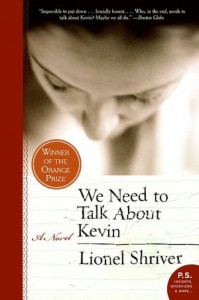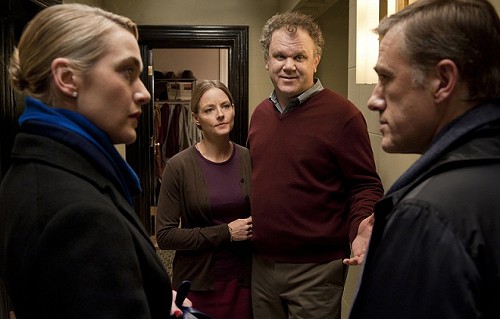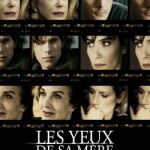 In need of winter reading? Enter to win our January giveaway: A paperback copy of “We Need to Talk About Kevin,” by Lionel Shriver, a gripping tale of horrifying family dysfunction. Director Lynne Ramsay’s neo-noir movie version of “Kevin” started release in December and returns this month. Check your local listings for details. “We Need to Talk About Kevin” stars Tilda Swinton, John C. Reilly and Ezra Miller.
In need of winter reading? Enter to win our January giveaway: A paperback copy of “We Need to Talk About Kevin,” by Lionel Shriver, a gripping tale of horrifying family dysfunction. Director Lynne Ramsay’s neo-noir movie version of “Kevin” started release in December and returns this month. Check your local listings for details. “We Need to Talk About Kevin” stars Tilda Swinton, John C. Reilly and Ezra Miller.
(Matthew is the winner of the December reader giveaway, the Bogie-Bacall DVD set. Congrats to Matthew and thanks to all who entered!)
To enter the January giveaway, just leave a comment on any FNB post from Jan. 1-31. We welcome comments, but please remember that, for the purposes of the giveaway, there is one entry per person, not per comment.
The winner will be randomly selected at the end of the month and announced in early February. Include your email address in your comment so that I can notify you if you win. Your email will not be shared. Good luck!














From FNB readers